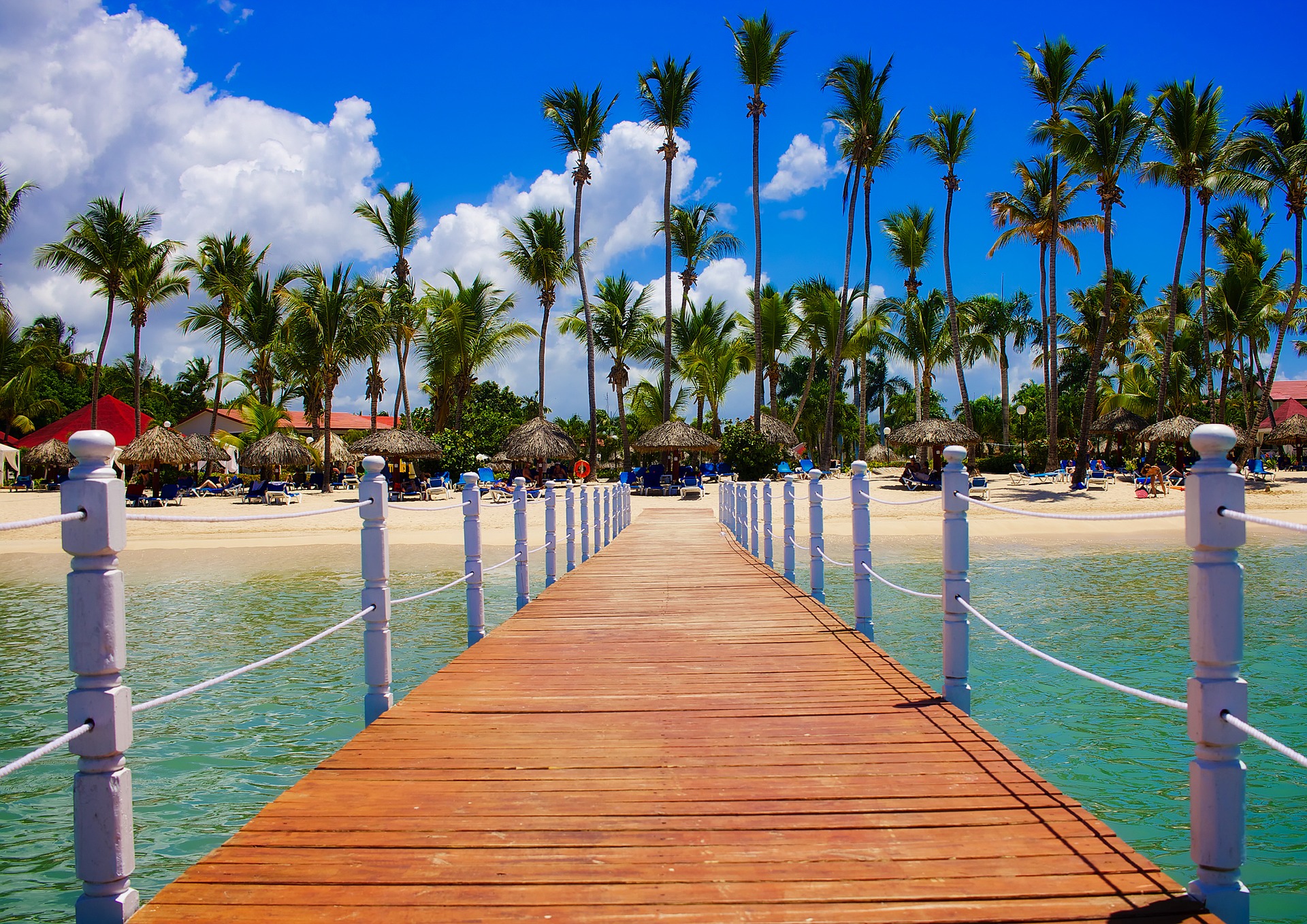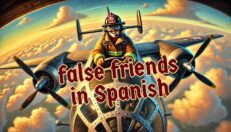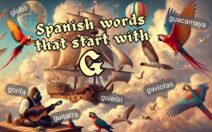29 Dominican Republic Slang Words To Know Before Visiting The Caribbean

Get our free email course, Shortcut to Conversational.
Have conversations faster, understand people when they speak fast, and other tested tips to learn faster.
More infoLearning (even a little) Dominican Republic slang will go a long should you decide to visit the Caribbean island that gave the world Merengue and Bachata dancing.
Although this is a Spanish speaking country, many people in Latin America would tell you that Dominicans have their own 2nd language (i.e. local slang).
In this post, we’ll cover the most popular Dominican Republic slang, straight from the streets of Santo Domingo.
Sidenote: The post is the latest in our Spanish slang series, where we explore the best slang from Spanish speaking countries.
You can read more posts from our slang series here:
- Colombian slang
- Mexican slang
- Venezuelan slang
- Chilean slang
- Argentine slang
- Uruguayan slang
- Guatemalan slang
- Cuban slang
- Honduran slang
- Bolivian slang
- Ecuadorian slang
- Nicaraguan slang
- Panamanian slang
1) Qué lo que
The locals probably won’t greet you with “normal” Spanish. Instead, this is what you’re likely to hear.
- ¿Qué lo que, cómo va todo? – What’s up? How’s everything?
2) Dímelo cantando
We love this one. Instead of saying what’s new, you say “dímelo cantando”, which literally means “tell it to me singing”.
You gotta love Dominican Republic slang.
- Qué lo que? Dímelo cantando – What’s up? Tell me everything
3) Tranqui
Short for “tranquilo”, with a similar translation – used to express quiet, chill or nothing happening.
- Me voy a quedar tranqui en casa esta noche – I’m going to chill at home tonight
4) Chillaxing
Another favorite – when you’re chilling and relaxing at the same time.
- No estoy haciendo nada, solo chillaxing – I’m not doing anything, just chilling
5) Una fría
Nobody likes warm beer – especially on a Caribbean island . When you want a beer, you can order “una fría” which means a cold one.
- Dame una fría, por favor – Give me a cold beer, please
6) Pana
A popular term for close friends, which you can also hear in other Spanish speaking countries.
- Estudiamos juntos en el colegio, somos panas – We studied together at school, we’re good friends.
7) Dame dato
Literally means “give me data”, and is used to ask for information.
- Dame data, ¿qué lo que para esta noche? – Give me details, what are we doing tonight?
8) Ñapa
Another word for a tip in the DR.
- Les dejé propina y una ñapa porque me gustó el servicio que dieron – I left a tip and something extra because I liked the service they gave
9) Mano, Mana
Short version for hermano (brother) o hermana (sister), but doesn’t always refer to family, as it can be used to talk about close friends (i.e my bro).
- ¿Qué pasó mano, todo bien? – What’s up bro, everything’s cool?
10) Coro
Coro translates to “chorus”, but it’s also Dominican Republic slang for a big party.
- El sábado tenemos un coro, y no puedes faltar – We have a big party on Saturday, and you can’t miss it
11) Corito sano
Another slang term for a party, but something much more relaxed – perhaps hanging out at a friends house, or a small gathering at a bar.
- Anoche estábamos en un corito sano en casa de mi amiga – Last night we were chilling at my friend’s house
12) Cocaleca
Popcorn seems to have a different name in almost every Latin American country, and DR is no different.
- Vamos a comprar cocalecas para ver la película – Let’s buy some popcorn to see the movie
13) Matatan
Matatan is slang for somone who is the master of something, or is hierarchically above others (i.e. the boss).
- Mi madre es la matatan en la cocina. Nadie cocina mejor que ella – My mother is the master chef. Nobody cooks better than her
14) Vaina
This one is common in many Spanish speaking countries and simply means a “thing”, which is good to know should you forget the correct word for something.
- Tráeme esa vaina que tienes ahí – Bring me that thing that you have there
15) En olla
This Dominican Republic slang translates as “in the pot”, but is used to say that you don’t have any money, or you’re broke.
- No puedo comprar esos zapatos ahora, estoy en olla – I can’t buy those shoes right now, I’m broke.
16) Deguabinao
When you are tired or exhausted, this is the word you need to express that feeling.
- No quiero ir a trabajar, me siento deguabinao – I don’t wanna go to work, I feel really tired
17) Dar bola
This literally translates as “to give balls”, but is used to say that you are going to give someone a ride.
(we never claimed that Dominican Republic slang made any sense)
- ¿Puedes darme bola hasta mi trabajo mañana? – Can you give me a ride to my work tomorrow?
18) Colmado
Another word for a little grocery store that you can find in almost every neighbourhood.
- Hey, ve al colmado y trae algo de pan – Hey, go to the grocery store and bring some bread
19) Concho
Dominican Republic slang for a taxi.
- Voy a llamar un concho para ir al aeropuerto – I’m going to call a taxi to go to the airport
20) Carajito, carajita
Slang for a kid who is acting a little loko – maybe after too many glasses of coca-cola.
- Dile al carajito que se baje de la mesa – Tell the boy to get off the table
21) Disparate
Slang for someone who is talking nonsense.
- Ya estás borracho y estás hablando solo disparates – You’re drunk and you are just talking nonsense.
22) Piña
Yes, piña means pineapple, but it’s also Dominican Republic slang for a street fight.
- Se cayeron a piña en la esquina – There was a street fight in the corner
23) Papi chulo
Used by some DR locals to describe a handsome man.
- Anoche salí con un chico que estaba bien papi chulo – Last night I went out with this really handsome guy
24) Zafacón
Another word for a trash can.
- Bota esa vaina en el zafacón – Throw that thing in the trash can
25) Hablador
Dominican Republic slang for someone who is very chatty, or likes to gossip.
- No me gusta que estés con ella, es muy habladora – I don’t like you being with her, she’s a very gossipy girl
26) Ajumao
What happens when you drink too many frías at a coro? Yep, you guessed it.
- Anoche estaba muy ajumao – Last night I was really drunk
27) Pique
This one can be heard in other Spanish speaking countries, and used when something bothers you or makes you angry.
- Lo que ella me dijo, me dió un pique horrible – What she said to me, really pissed me off
28) Bultero
A person who brags about themselves, or the things they own.
- Ese hombre es muy bultero, siempre está presumiendo – That man is a braggart. He is always showing off
29) Dique
And finally, a slang term that either express “yeah right” or “supposedly”.
- El dique viene con nosotros esta noche a la fiesta – He supposedly comes with us tonight to the party



